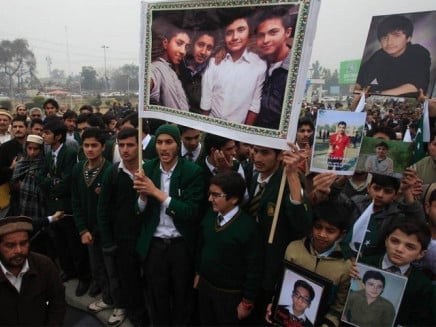Islamabad: The morning of December 16, 2014, is a dark chapter in Pakistan’s history, marked by the tragic terrorist attack on Army Public School (APS) in Peshawar, which claimed the lives of around 150 students and teachers. This horrific incident served as a turning point for the nation, yet, a decade later, families and citizens still seek answers from their leaders, as justice remains elusive.
As December 16, 2024, approaches, marking ten years since the attack, Pakistan reflects on the profound impact it had not just on the country but also on the global community. Despite the implementation of a National Action Plan (NAP) aimed at eradicating terrorist groups like Tehreek-e-Taliban Pakistan (TTP), which claimed responsibility for the attack, the struggle against terrorism persists.
Today, Pakistan mourns the victims of the APS attack, with educational institutions closed and special prayers and rallies held in remembrance. However, the nation continues to grapple with the ongoing threat of terrorism, as attacks still occur regularly. Strategic analyst Kamran Yousaf notes that the TTP has gained strength since the Afghan Taliban’s takeover in 2021, receiving support that has allowed them to launch attacks against security forces and police.
While the Pakistani government asserts that the Afghan Taliban are aiding the TTP, it also acknowledges its own shortcomings in eliminating the group’s presence within its borders. Other extremist factions, often motivated by sectarianism, also remain active and pose significant threats.
Analyst Azaz Syed emphasizes that terrorism must be addressed comprehensively, without selective targeting of specific groups like TTP, Al-Qaeda, or ISKP. He argues that all forms of extremist violence need to be neutralized to effectively combat terrorism.
As the anniversary of the APS tragedy approaches, families of the victims continue to demand the full implementation of the NAP and justice for their loved ones. Political analyst Javed Siddique criticizes the government’s focus on political maneuvering over counterterrorism efforts, stressing that a shift in priorities is essential to prevent future tragedies like the APS attack.
